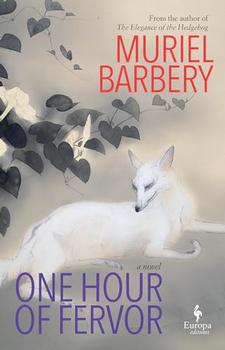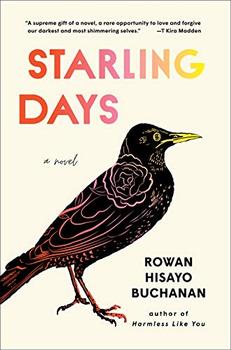Summary | Excerpt | Reviews | Beyond the book | Read-Alikes | Genres & Themes | Author Bio

It's winter in Sokcho, a tourist town on the border between South and North Korea.
The cold slows everything down. Bodies are red and raw, the fish turn venomous, beyond the beach guns point out from the North's watchtowers. A young French Korean woman works as a receptionist in a tired guesthouse. One evening, an unexpected guest arrives: a French cartoonist determined to find inspiration in this desolate landscape. The two form an uneasy relationship. When she agrees to accompany him on trips to discover an "authentic" Korea, they visit snowy mountaintops and dramatic waterfalls, and cross into North Korea. But he takes no interest in the Sokcho she knows―the gaudy neon lights, the scars of war, the fish market where her mother works. As she's pulled into his vision and taken in by his drawings, she strikes upon a way to finally be seen.
An exquisitely-crafted debut, which won the Prix Robert Walser, Winter in Sokcho is a novel about shared identities and divided selves, vision and blindness, intimacy and alienation. Elisa Shua Dusapin's voice is distinctive and unmistakable.
Short, staccato sentences propel the story forward with the brevity and momentum of a journal entry. There is a deceptive amount of skill on show, however. Dusapin achieves much with little, conjuring the sights, smells, sounds, and tastes of Sokcho to great effect, making for a surprisingly evocative reading experience. The bittersweet conclusion feels in keeping with the novel's overall tone and approach. Dusapin says just enough to hint at the profound impact the characters have had on each other, while leaving room for both to continue exploring their identities beyond the page...continued
Full Review
(548 words)
This review is available to non-members for a limited time. For full access,
become a member today.
(Reviewed by Callum McLaughlin).
 In 2007, the University of Rochester launched Three Percent, an online database that aimed to strengthen support for translated literature within the US market, supplementing the work of their translation press, Open Letter — publisher of Elisa Dusapin's Winter in Sokcho. The project was a response to reports at the time that a mere three percent of books published in the US were works in translation. But how have things changed since then?
In 2007, the University of Rochester launched Three Percent, an online database that aimed to strengthen support for translated literature within the US market, supplementing the work of their translation press, Open Letter — publisher of Elisa Dusapin's Winter in Sokcho. The project was a response to reports at the time that a mere three percent of books published in the US were works in translation. But how have things changed since then?
It does seem that respect for the value of translated literature is growing within the industry itself, slowly but surely. Though an early form of the International Booker Prize was established in 2005, for example, it was initially awarded just once every two years to an author for their ...
This "beyond the book" feature is available to non-members for a limited time. Join today for full access.

If you liked Winter in Sokcho, try these:

by Muriel Barbery
Published 2024
From the best-selling author of The Elegance of the Hedgehog comes a family story with a difference, a novel about the decisions one makes and the destiny they determine by one of Europe's most brilliant and stylistically subtle authors.

by Rowan Hisayo Buchanan
Published 2021
The moving new novel by the author of Harmless Like You, a New York Times Book Review Editors' Choice and NPR Great Read.
Read the best books first, or you may not have a chance to read them at all.
Click Here to find out who said this, as well as discovering other famous literary quotes!